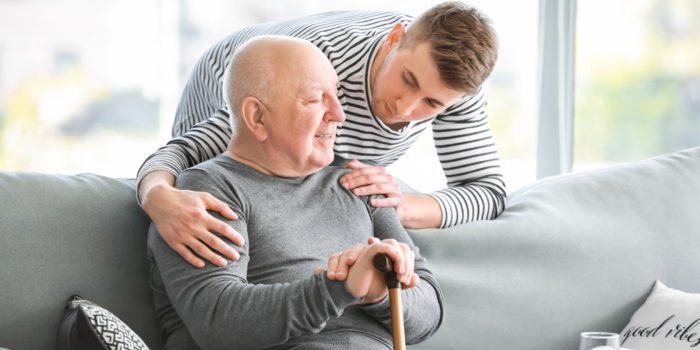The VA Caregiver Support Program offers services to support eligible caregivers of disabled veterans who need daily assistance. The disabled veteran must have a 70% disability rating from the VA and require help with daily living activities. The Program of Comprehensive Assistance for Family Caregivers (PCAFC) offers several benefits, including:
1. Monthly Stipend
2. Training
3. Health Care
4. Mental Health Care
5. Travel Benefits
6. Respite Care
There are eligibility requirements that the veteran and caregiver must meet to qualify for each service. For those eligible, these services provide much-needed support to ensure quality care for disabled veterans and their caregivers.
Who is eligible for VA Caregiver Support Benefits?
For a veteran to be eligible for this program, they must have a serious injury or illness caused or aggravated by active-duty military service. They must have served in the Armed Forces before May 7, 1975, or on or after September 11, 2001. The VA must have rated the illness or injury as service-connected with a 70% disability rating. The 70% disability rating can be from one condition or multiple conditions.
In addition to meeting the service and disability requirements, the veteran must be unable to perform daily living activities on their own for at least the next six months. Daily living activities include feeding, taking medicine, toileting, and bathing. The veteran may also need supervision, protection, or instruction, meaning they need someone to ensure they are taking medication properly or to keep them from wandering off if they have dementia.
There are eligibility requirements for the caregiver also. Caregivers must be at least 18 years old and have one of the following relationships with the veteran:
· Spouse
· Child
· Parent
· Stepfamily member
· Extended family member
· Someone who lives with the veteran full-time
The VA will evaluate the potential caregiver’s ability to perform personal care services and, if approved, will provide further training and education.
6 Benefits of the VA Caregiver Support Program
The VA offers several benefits to eligible veteran caregivers. It is essential to understand each service as individual conditions may apply to each.
1. Monthly Stipend
A monthly stipend is one of the most helpful services that caregivers may receive. Providing care is often an around-the-clock responsibility, making it difficult, if not impossible, for the caregiver to earn income. A monthly stipend offers financial assistance for caregivers.
Payment amounts for the monthly stipend can be difficult to understand initially. First, let’s distinguish between the two levels of pay.
· Level One – This stipend level is awarded to caregivers when the VA determines that the veteran is able to “self-sustain in the community.” Level One benefits are the lower-end stipend payment.
· Level Two – This stipend level is awarded to caregivers when the VA determines that the veteran is not able to “self-sustain in the community.” Level Two benefits are the higher-level stipend payment.
What exactly does “self-sustain in the community” mean? If the veteran cannot complete three or more of seven daily activities independently or need supervision, protection, or instruction, they cannot self-sustain in the community.
Now that we understand the two levels let’s discuss the payment amounts. The monthly stipend is based on the OPM GS Annual pay rate for a GS 4 step 1 position. The exact amount varies per location. You can visit this rate table to see current rates by location.
The annual rate is divided by 12 to become the monthly pay rate. If you receive Level One stipend pay, you will receive 62.5% of that monthly payment amount. If you receive Level Two stipend pay, you will receive 100% of the monthly payment amount.
OPM may make annual updates to the GS pay tables, and as that happens, your monthly amount will also change. Updated amounts will take effect on the first of the month following the change.
2. Training
The VA provides educational and training resources to caregivers to enhance their skills and ability to give quality care to veterans. Caregivers can access online material covering various topics, from understanding individual diagnoses to preparing for palliative care.
Through a partnership with PsychArmor Institute’s School for Military Caregivers and Families, caregivers can enroll in free online courses to enhance personal care skills.
In addition to these resources, caregivers can always contact the VA’s Caregiver Support Line (CSL) for answers to questions and to connect with more available resources at 1-855-260-3274.
3. Health Care
Many dedicated caregivers allow their health to take a backseat to their responsibilities of caring for their loved ones. A caregiver’s neglect of their own personal care is even more prevalent when they lack health insurance. That’s why the VA offers health care for eligible caregivers through the Civilian Health and Medical Program of the Department of Veterans Affairs (CHAMPVA).
CHAMPVA is a cost-sharing program managed by the Veterans Health Administration (VHA). As with any health insurance, many different covered services and amounts exist. A few standard services that CHAMPVA will help pay for are:
· Mental health
· Prescriptions
· Doctor’s office visits
· Hospital services
· Medical supplies and equipment
For more information, visit the CHAMPVA page of the VA’s website.
4. Mental Health Care
Along with maintaining good physical health, it is essential for caregivers to care for their mental health. Providing care takes a huge toll on caregivers. That’s why 66% of unpaid caregivers reported at least one mental health symptom in 2020, according to an article published by the American Psychological Association.
Mental health counseling is available to caregivers, even if they don’t qualify for CHAMPVA coverage.
5. Travel Benefits
Caregivers may be eligible for travel benefits when the veteran must travel to medical appointments and treatment.
6. Respite care
Personal care is a 24/7 job, and every caregiver needs a break. The VA authorizes at least 30 days of respite care per year. Respite care must be scheduled through the VA Caregiver Support Program to coordinate short-term relief care for the veteran.
How do you apply for VA Caregiver Support Program Benefits?
As with all veteran benefits offered by the VA, the veteran must submit an application to be considered for this program. VA Form 10-10CG (Application for Family Caregiver Benefits) can be submitted online or by mail.
Both the veteran and caregiver need to complete portions of the application. Before you begin filling out the form, be sure to have this information available:
· Address, phone number, and date of birth for the veteran and caregiver
· Name of the VA Medical Center nearest the veteran
· Caregiver’s health insurance information
· Veteran’s social security number
After applying, you’ll be contacted by a Caregiver Support Program representative who will get more information from you if needed and discuss the next steps. If the veteran is not enrolled in VA Health Care, they will also need to apply for that. You do not need to submit medical documents with the application. The VA will request documents from you if required.
What if my VA Caregiver Support Program application is denied?
If your application is denied, you have the right to appeal. Depending on the decision date, your appeal may take two paths.
For decisions received before February 19, 2019, you can submit an appeal to the Board of Veteran’s Appeals by completing the VA Form 10-307 to Veterans Affairs Evidence Intake Center. Your other option is to ask for a review by the VHA Clinical Review Process. To start this process, you’ll need to contact a Patient Advocate at your local VA.
For decisions received on or after February 19, 2019, you have the following four options:
1. VHA Clinical Review Process: contact a Patient Advocate
2. Submit a Supplemental Claim: submit VA form 20-0995 with new evidence
3. Request a Higher-Level Review: submit VA Form 20-0996; no new evidence can be submitted
4. Appeal to the Board: submit VA Form 10182
The forms cited above can be accessed through the appeals section of the VA Caregiver Support Program Appeals webpage.
Where to get help
Whether preparing an appeal to a denied application for caregiver benefits or just starting the process, it is crucial to seek help. As you can see, it can be hard to understand the tiers of support and the tedious application process. Getting help from a veteran benefits expert can be the difference between receiving the benefits you’ve earned and being denied.
The professionals at Valor 4 Vets have been helping veterans to get claims approved for many years. They know the ins and outs of VA benefits and can help you avoid the appeals process altogether. Contact them today if you think you are eligible for this benefit.







